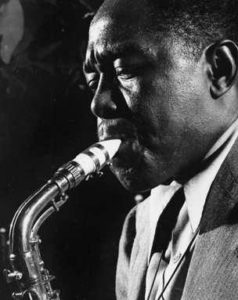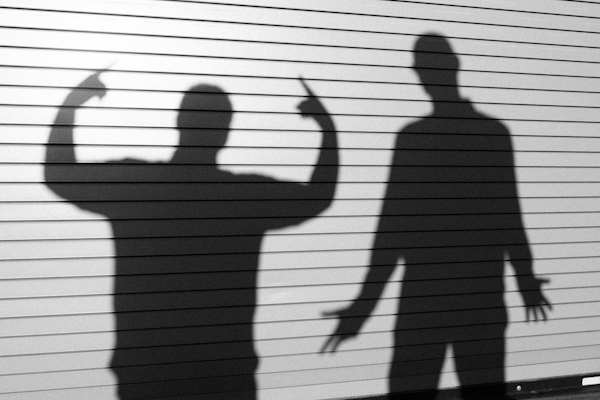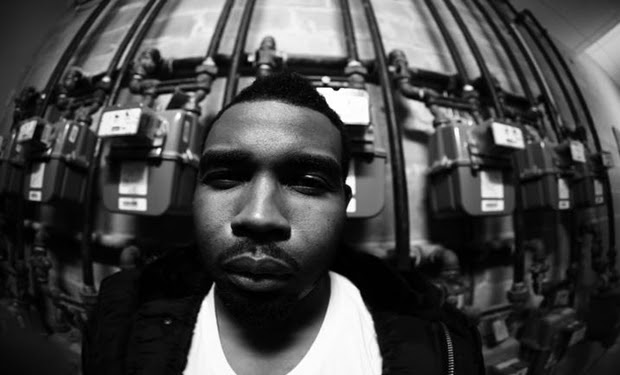Miles Davis never minced words and he never danced around a subject. He gave it to you straight with no chaser. When asked once for a brief summary of the history of jazz, Davis responded, “Louis Armstrong. Charlie Parker.”
It sounds myopic, but there are plenty of Parker aka The Birdman aficionados who similarly take that as gospel. Parker wasn’t first and he surely wasn’t last, but in his short life he made an indelible imprint jazz that cannot be ignored.
He took jazz as his calling early in life, but legend has it he wasn’t very good at the offset. He had no formal training and was discouraged from continuing by some. The chiding from the naysayers lit the fire. It was during this time that the young Parker used the frustration to put his nose to the grindstone and learned accurate playing practices from the ground up. He didn’t give up on his wild naiveté though. Those rules laid the foundation but Parker never allowed himself to be bound by them. His adherence to proper technique made him a suitable band member. The glorious reckless abandon of his improvisation made him famous and his inimitability made him a legend.
Parker and his saxophone moved from place to place, joining bands and playing shows in Kansas City, Chicago, LA and New York. He bobbed and weaved, pulling from each new experience. He drew any and everything he could from the likes of Art Tatum, Dizzy Gillespie and Earl Hines; incorporating these new elements into his already dizzying mix of abilities. And while learning, he was also creating. Parker, along with some other virtuosos, was in the midst of creating what we now know as Be-Bop.
Be-Bop was not your father’s jazz. It couldn’t be found at expensive uptown swing joints that catered to the purists. It was hype, uptempo music characterized by wildly, frenetic solos and plenty of improvisation; a natural progression for many who wanted to buck the musical rules. It was also a way for young black jazz musicians to separate themselves from the white swing movement that to them had become a bit stodgy.
Through the Be-Bop movement, the youthful players of the day; Parker, Miles Davis Charlie Mingus, Bud Powell, Max Roach and others came to rule the roost. much to the chagrin of older players who just didn’t understand the new wave. Parker’s music was covered by plenty in the industry. Most who covered him didn’t even bother to add their own signature style to the songs. He fused jazz and chamber music, played the blues like he was from the Delta and rewrote the rules so younger artists would be comfortable with pushing the envelope. He changed the way people saw jazz. After Bird, jazz was no longer the stodgy music of an older generation . It became the genre of choice for the uber intellectual and the young hipster.
It wasn’t all accolades and champagne though. While Parker was transforming his contemporary sonic landscape with all the blaze his horn could muster, he went relatively unrecognized by the masses until decades later. The Birdman had a penchant for cheap wine that left him with bleeding ulcers and developed an addiction to heroin that destroyed his professional image and ultimately led to his untimely death in 1955. He was 34 years old.
Sometimes it takes a while for genius to be recognized and even longer for it to be understood. Bird had that unique vanishing point brilliance that has never stops unfolding. No one knows what he would have accomplished had he been with us longer, but we do know one thing. When he was ours, Bird was jazz. Just ask Miles Davis.
Happy birthday Charlie Parker.
Love,
Planet Ill
Charlie Parker & Dizzy Gillespie – “Hot House”
[pro-player width=’455′ height=’344′ type=’video’]http://www.youtube.com/watch?v=wkvCDCOGzGc&feature=related[/pro-player]
Follow shelz. on Twitter @ http://twitter.com/shelzp
Follow Us on Twitter @ http://twitter.com/planetill
Join Us on the Planet Ill Facebook Group for more discussion
Follow us on Networked Blogs





One thought on “Planet Ill Celebrates Charlie Parker: Birthday For The Birdman”